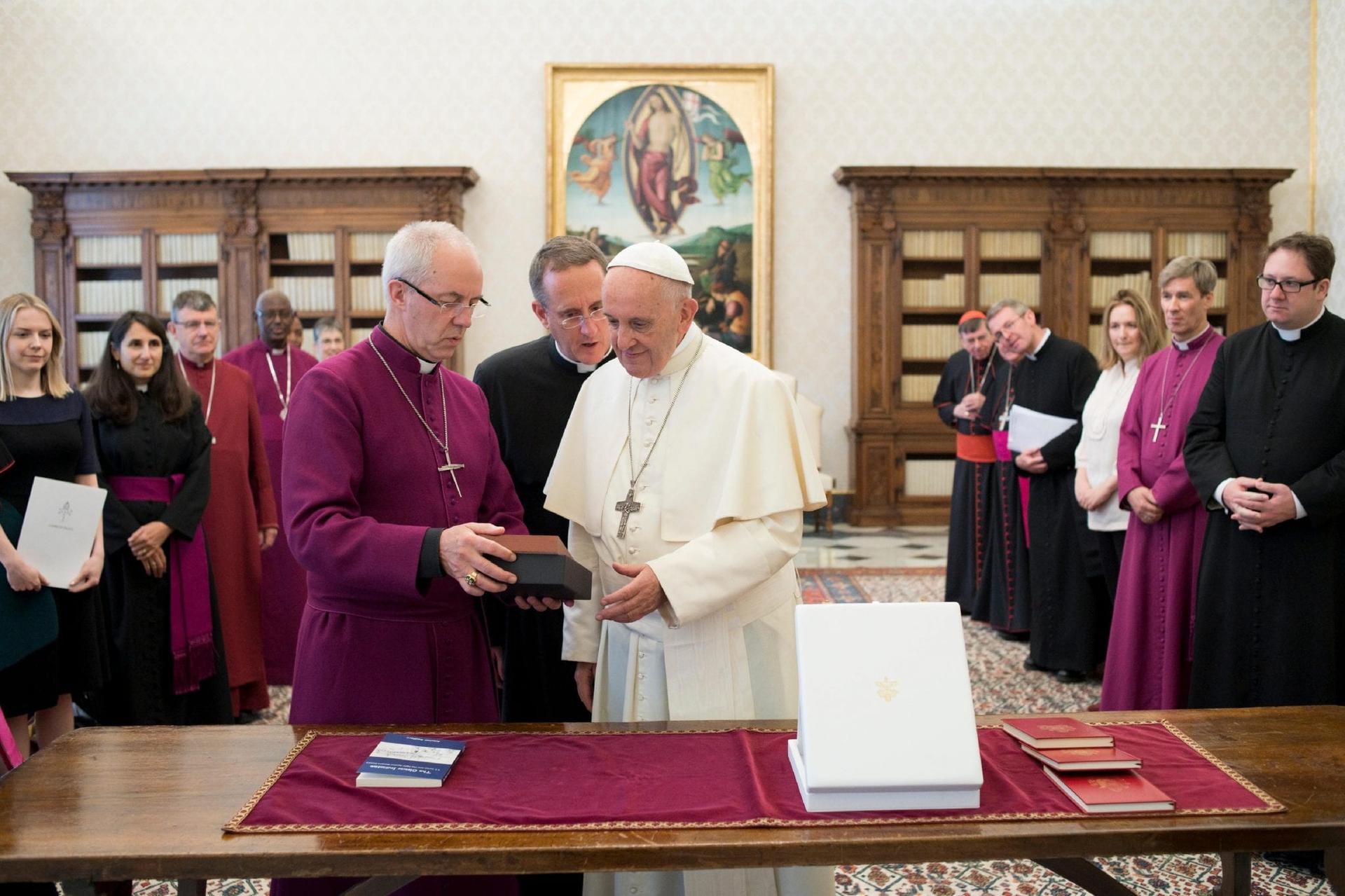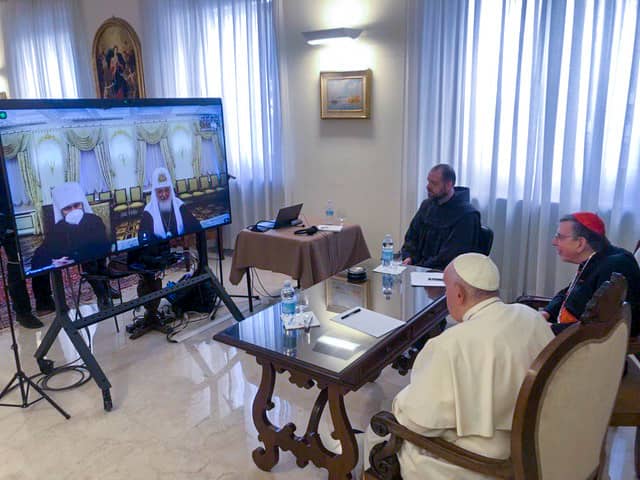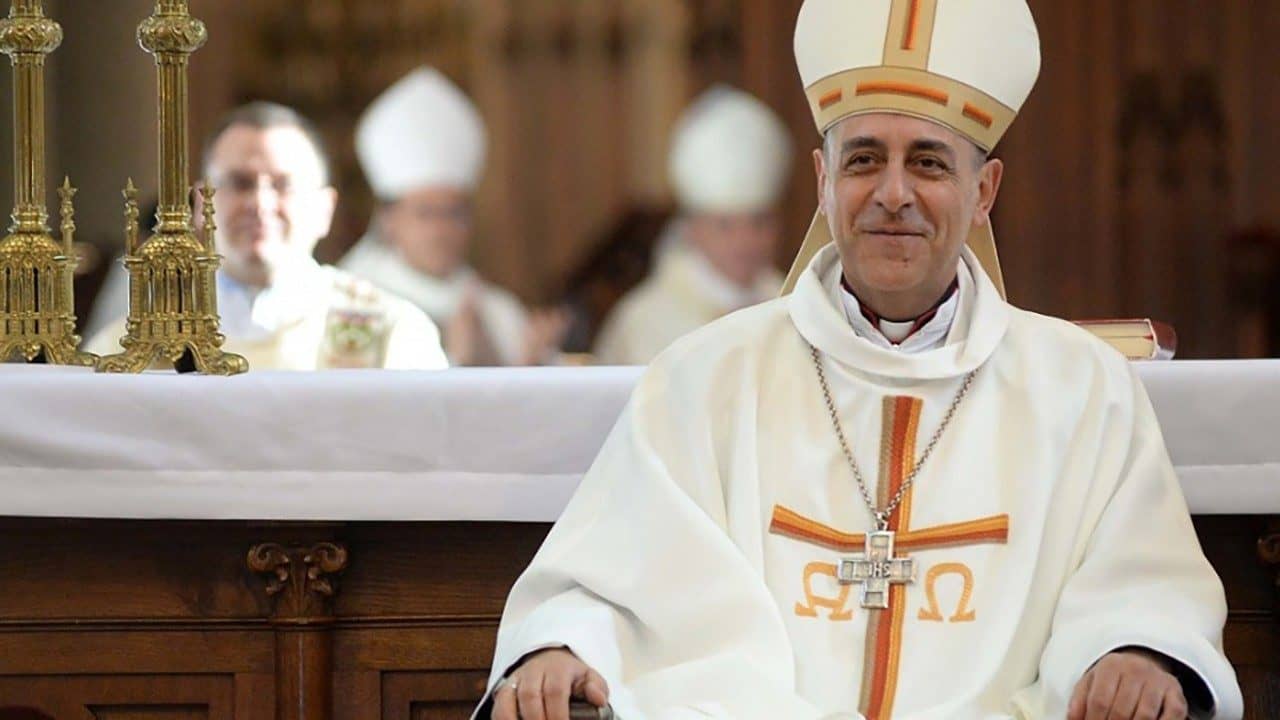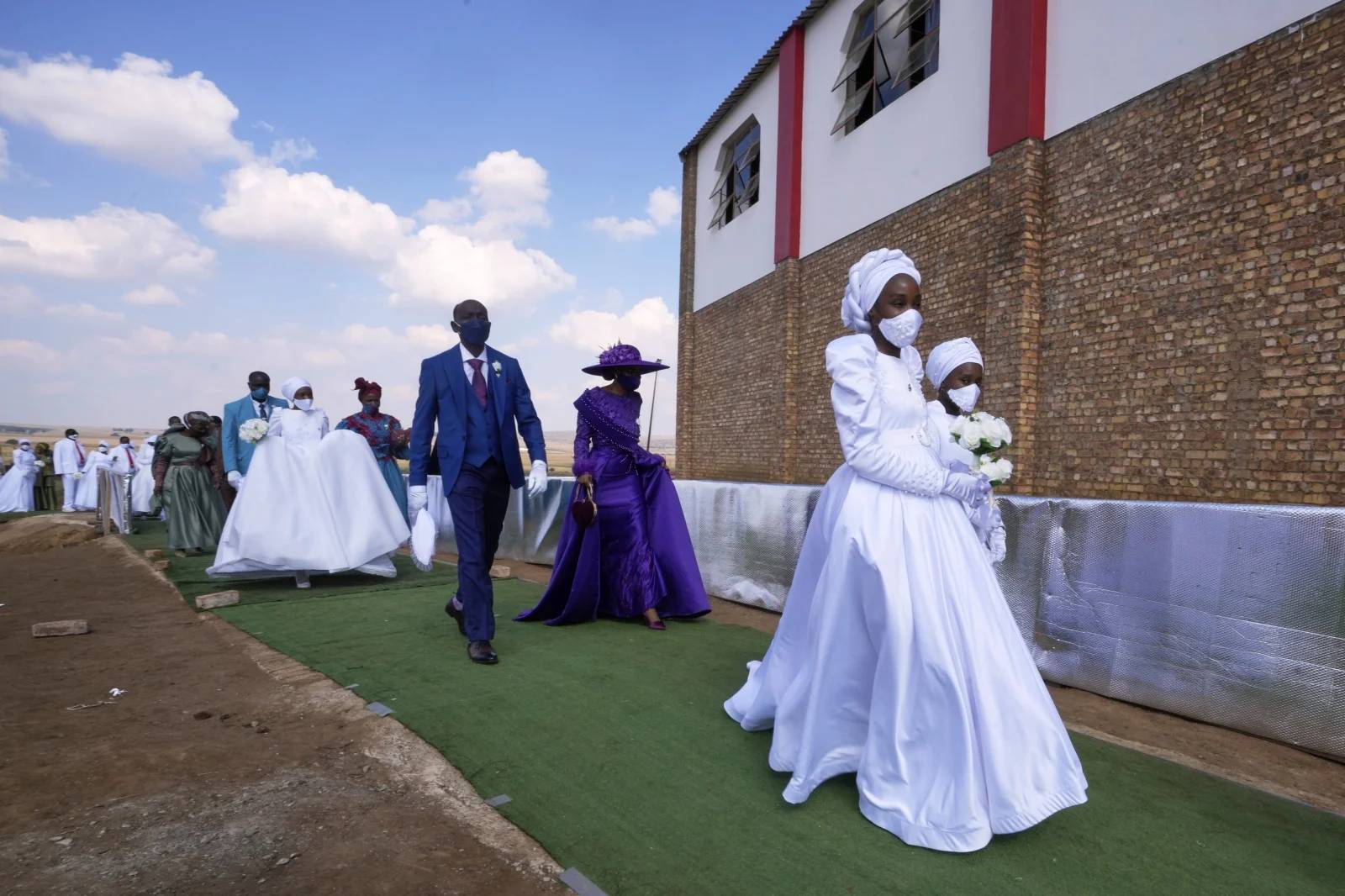ROME – Anyone looking at the Vatican’s official news bulletin on Tuesday would have seen two items: A declaration detailing a retreat being hosted this week by Pope Francis and Archbishop Justin Welby of Canterbury for South Sudan’s political leadership, and an updated set of norms for “personal ordinariates”, meaning structures for former Anglicans to enter into full communion with the Catholic Church.
At first glance, the only thing the two developments may seem to have in common with one another is the word “Anglican.” In reality, there’s a deeper bond between the two storylines.
Let’s begin with the ordinariates. The story there really begins in 2009, when Pope Benedict XVI issued the document Anglicanorum coetibus creating the possibility of personal ordinariates for communities of former Anglicans wishing to retain their liturgical and spiritual heritage while being accepted into Catholicism.
An ordinariate is similar to a diocese and is overseen by an “ordinary,” who can be, but doesn’t have to be, a bishop. At present, there are three such structures for former Anglicans: The Chair of St. Peter in the United States and Canada, Our Lady of Walsingham in England, and Our Lady of the Southern Cross in Australia.
The background is that in 2007, the Vatican received a petition from a group called the Traditional Anglican Communion, which had broken with Canterbury over issues such as women priests and bishops and gay clergy, for a form of “corporate communion” with Rome. In effect, Anglicanorum coetibus was Rome’s response.
(Prior to that, it was possible for individual Anglicans to enter communion with Rome, and there was a “pastoral provision” permitting Anglican clergy to become Catholic priests even if they were married. However, there was no mechanism for an entire Anglican community to become Catholic and maintain its heritage.)
Worried about potential blowback from Anglicans who might be tempted to see the creation of such structures as fishing in their pond, not to mention lending credence to open dissidents within Anglicanism, the Catholic side took extraordinary steps to soften the blow. In the UK, for example, Anglicanorum coetibus was presented in a joint press conference by Rowan Williams, at the time the Archbishop of Canterbury, and Cardinal Vincent Nichols of Westminster, in which the two men together styled the document as further proof of an “overlap in faith, doctrine and spirituality” between the two churches.
Despite the spin, some Anglicans nonetheless were irked.
The then-Bishop of Lincoln in the Church of England, John Saxbee, said the decision “doesn’t sit easily with all of the talk about working towards better relations.” Canon Giles Fraser, then Chancellor of St. Paul’s Cathedral, said it had a “slightly predatory feel” and that “in corporate terms, it’s a little like a takeover bid in some broader power play of church politics.” The then-Bishop of Guildford, Christopher Hill, called it an “insensitive act.”
On the Catholic side, some liberal voices didn’t like the idea of rolling out a red carpet for traditional Anglicans who had broken with their original church over perceptions it was moving too far in a progressive direction. Others warned that the move would generate hard feelings among Anglicans and set back ecumenical relations, complicating efforts to cooperate on anything.
In truth, most neutral observers always say such forecasts are overheated. Realistically, most dissident Anglicans upset over matters such as women clergy and gay clergy were from the Evangelical wing of the communion, unlikely to embrace a “Roman option” for a variety of reasons. The number of people likely to be affected, therefore, was always destined to be small, and experience has confirmed the point.
All this brings us back to this week’s retreat, which is confirmation, if any were needed, that rumors of the death of Catholic/Anglican relations after Anglicanorum coetibus were greatly exaggerated.
Understandably, most of the attention to the gathering of South Sudan’s political class has been focused on the prospects for cementing a peace deal to end a bloody conflict that’s cost 400,000 lives, left two million people as refugees and another two million internally displaced, as well as only two percent of the population with access to electricity and 66 percent of the country’s 12 million people living in extreme poverty.
What’s drawn less notice is the remarkably ecumenical nature of the initiative. The invitation was issued jointly by Welby and Francis, and the two men are both on hand at the Santa Marta, the Vatican residence where Francis lives.
Forget the political overlay – not so long ago, the very idea of a pope and an Archbishop of Canterbury taking part in a joint spiritual retreat, whatever the guest list, would have been basically unthinkable.
In effect, this is Francis’s vision of ecumenism in action. He’s less interested in rehashing old theological and ecclesiastical debates than in becoming friends by finding things to do together in the here-and-now. It’s been his approach with Patriarch Bartholomew of Constantinople, for instance, and it’s also on display this week with Welby.
A decade after the fact, one can make whatever assessment seems merited of Anglicanorum coetibus and its consequences. What can’t be argued, however, is that it made progress in Catholic/Anglican relations impossible – because progress is exactly what we see happening right now.













